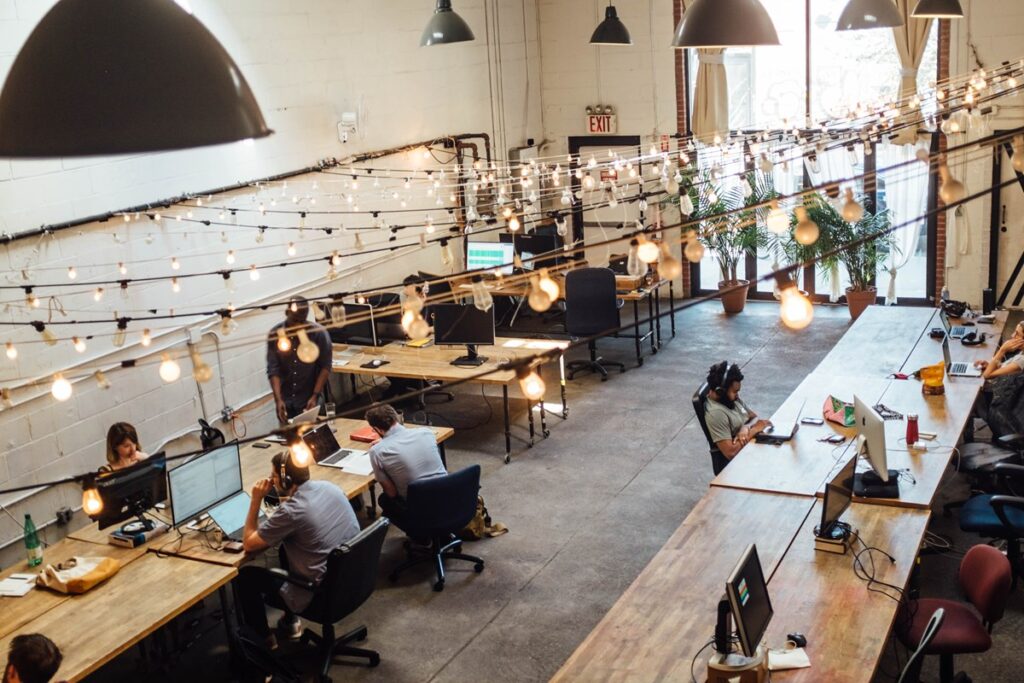Are you familiar with The Tipping Point?
It’s a phenomenon that’s played a big part in bringing us to a revolution in coworking spaces – one that will reach its own tipping point in 2024. Let us explain.
Nearly 24 years ago, a book by the same name debuted to great critical acclaim. It explained how a ‘moment of critical mass’ – a boiling point, if you will – helps an idea become a phenomenon.
When the first coworking space was set up in 1995, it lit a gentle flame underneath the concept of like-minded people coming together to work, collaborate and exchange ideas. Over the last three decades, this flame fanned away, making the concept of a coworking space a suitable alternative to the company office. In the last 10 years, this steady simmering has reached a boil, with 72% of coworking spaces around the world becoming profitable in just two years, and over 20 million people choosing them over their homes or company offices.
2024 marks the moment when it all comes together. New working trends, proven productivity boosts and a rekindled desire for human connection have made coworking spaces indispensable. The concept has generated enough heat to enjoy its own tipping point. Here’s what we can expect to see as a result of this phenomenon.

While a coworking space might not replace an HQ altogether, it is the antithesis of all the things wrong with a typical office. The commute in, the rigidity of desks, the overhead fluorescent lighting, the lack of networking opportunities, the suppressed productivity…need we go on?
In sharp contrast, the enlightened employee needs (not wants) an environment that allows them to balance work with well-being, productivity with socialisation and the choice to work however and wherever they want. It’s becoming a critical factor in hiring and retaining top talent. As much as an office block might try, it’s hard to compete with the organic, familiar and diverse setting a coworking space provides. It’s the reason why, according to one recent study, 75% of the companies surveyed plan to reduce their office space in 2024.
Let’s face it – a traditional office space can feel oppressive. It’s why modern offices are trying their best to offer bike storage, showers, breakout areas and fully stocked kitchens. These spaces have to compete with our homes to create an atmosphere that puts employees at ease.
Coworking, by its very ethos, lends itself to personalisation, adaptability and catering to basic human needs – whether that’s a healthy breakfast to gather around on a Friday morning, a yoga room to stretch before a big day or an electric bike facility to help with errands for the day.
To come into their own as the disruptors to the 9-5 cubicle, coworking spaces in 2024 will be so driven to give their members a standout service (one that’s indistinguishable from their WFH sanctuary) that the amenities provided will be second to none. A traditional office could never compete.
Terms like dynamic, bespoke and adaptable get thrown around a lot. More often than not, a traditional office space is anything but. Antiquated frameworks and disconnected systems mean emails need to be sent out for every small issue. Issues take longer to resolve, inventories are improperly managed and rooms get double-booked without much visibility.
Employees are more sensitive than ever to poorly managed workspaces because they are becoming accustomed to a digitally transformed world where everything is a click away.
Coworking spaces have been pioneering the digital transformation required to make a space run like a well-oiled machine. With 2024 on the horizon – and coworking spaces set to hit a record number of 42,000 the world over – only those with exceptional management software will emerge as winners. ?
To reduce costs, manage operations with efficiency and keep members coming back, coworking spaces will automate key aspects of their day-to-day, such as member billings and inventory management, alongside offering members dedicated digital portals that adapt the space to their needs. Insights and analytics gathered from a fully digitalised space will help coworking buildings become more dynamic, meet ESG goals faster, and incorporate key sustainability goals that delight investors and members in equal measure.